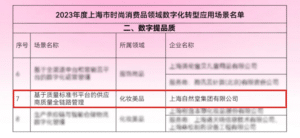UK joins CPTPP, signs biggest trade deal after Brexit
[ad_1]
The UK has become the first country outside the Indo-Pacific region to join a trans-Pacific trade agreement. According to analysis, the move may not be of great significance to the UK’s economic development in the short term, but it can be said to be an important geopolitical development.
The United Kingdom was accepted to join the “Comprehensive and Progressive Agreement for Trans-Pacific Partnership (CPTPP)” (Comprehensive and Progressive Agreement for Trans-Pacific Partnership, hereinafter referred to as CPTPP). It is the 12th member of the agreement and the first time that CPTPP has countries outside Europe and the Indo-Pacific join in.
The British Minister of Commerce and Trade Kemi Badenoch (Kemi Badenoch, also translated as Bad Noch) announced in the early hours of Friday UK time to join the CPTPP. The agreement originally had 11 members, including Australia, Brunei, Canada, Chile, Japan, Malaysia, Mexico, New Zealand, Peru, Singapore and Vietnam, with a total population of about 500 million, and their gross national product is about 15% of.
The British Ministry of Commerce and Trade stated that the gross national product of the original 11 CPTPP countries will reach 11 trillion pounds in 2021, equivalent to approximately 13.6 trillion U.S. dollars. In the year to the third quarter of last year, the trade volume between the UK and CPTPP countries was 111.1 billion pounds, accounting for 6.8% of the UK’s trade volume. During the same period, the UK exported £60.5 billion to CPTPP countries.
“Freedom to make trade policy after Brexit“
Bai Danna pointed out that joining the CPTPP shows that the British government has made good use of her ability to freely formulate trade policies after leaving the EU to find new markets in the world to develop the economy. She added that joining the CPTPP would give British businesses easier access to the Indo-Pacific region, a region seen as leading future growth.
However, according to the estimates of the British government, joining the CPTPP will only increase the British economy by 0.08%, while leaving the EU will reduce the growth of the British economy by 4%. On the British Broadcasting Corporation (BBC) radio program, Bai Danna pointed out that the outside world should not analyze the advantages and disadvantages of joining the CPTPP from a short-term perspective, but should treat it as if investing in a start-up company, focusing on the potential for growth.
Some experts also believe that the UK’s accession to CPTPP requires further adjustment of trade rules to member countries, which will make the UK further away from the EU. Sam Lowe, partner of Flint Global, a British business management consultant, told the Guardian (The Guardian) said joining the CPTPP would make it harder for Britain to rejoin the EU’s customs union. He also said that the UK does not seem to need to significantly adjust the rules inherited from the EU, showing that the EU and CPTPP rules are compatible.
strategic significance
In addition, Taiwan and China will formally apply to join the CPTPP in September 2021. It is of certain strategic importance for the UK to join this trade agreement.
Minako Morita-Jaeger, a researcher at the UK Trade Policy Observatory (UK Trade Policy Observatory), said that the UK’s accession to the CPTPP is a “major geopolitical achievement” with “a small amount of economic achievement”.
She said that the UK’s latest Comprehensive Assessment (Integrated Review) The defense diplomacy document reiterates that the UK is turning to the Indo-Pacific region, and the CPTPP provides a core policy framework that allows the UK to have strategic ties with similar-minded countries to ensure a free and open Indo-Pacific region.
Asked whether China would be concerned that the UK’s accession to the CPTPP would benefit Taiwan’s accession to the agreement, Chinese Foreign Ministry spokesman Mao Ning said that the Taiwan region is an inalienable part of China, and the one-China principle is a recognized norm of international relations and a general consensus in the international community. We resolutely oppose any country’s official exchanges with Taiwan, and resolutely oppose Taiwan’s participation in any official agreements and organizations.
She also said that China is a firm advocate of trade liberalization and facilitation, and an important participant in Asia-Pacific regional cooperation and economic integration. China’s entry into CPTPP will help member countries expand the Chinese market and expand economic and trade cooperation with China.
[ad_2]
Source link







